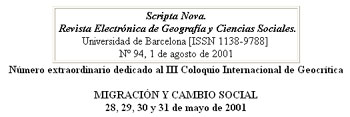Citizenship and immigration
Keywords:
citizenship, immigration, rights of citizensAbstract
The classical debate around the citizenship is usually placed within a closed scenery (the state), paying special attention to its qualities (its rights) and its internal differentiation (kinds of citizens it distinguishes). That scenery is usually not questioned, so that the citizenship is considered a particular good of state to be divided among its members in a more or less egalitarian way. Their determination, that is, their belonging, is considered a privilege of the state, which thus protects the us constituting it. Instead, in this article we claim that citizenship may not be taken as the source of rights but as a right of men. Nowadays, such a right is not just a simple ideal but also a matter of justice, as if citizenship is thought as a good, that right has to be distributed within the only scenery which justice can assume at present: at a world-wide level, open to everybody. Within a globalized economy, where the production and the distribution of wealth and poverty is the effect of the totality, just a distributive justice at a world-wide level makes sense and, therefore, also a universal citizenship.Downloads
Published
2007-05-19
Issue
Section
Articles
License
Los autores que publican en esta revista están de acuerdo con los siguientes términos:
- Los autores conservan los derechos de autoría y otorgan a la revista el derecho de primera publicación, cin la obra disponible simultáneamente bajo una Licéncia de Atribución Compartir igual de Creative Commons que permite compartir la obra con terceros, siempre que estos reconozcan la autoría y la publicación inicial en esta revista.
- Los autores son libres de realizar acuerdos contractuales adicionales independientes para la distribución no exclusiva de la versió de la obra publicada en la revista (com por ejemplo la publicación en un repositorio institucional o en un libro), siempre que se reconozca la publicación inicial en esta revista.





